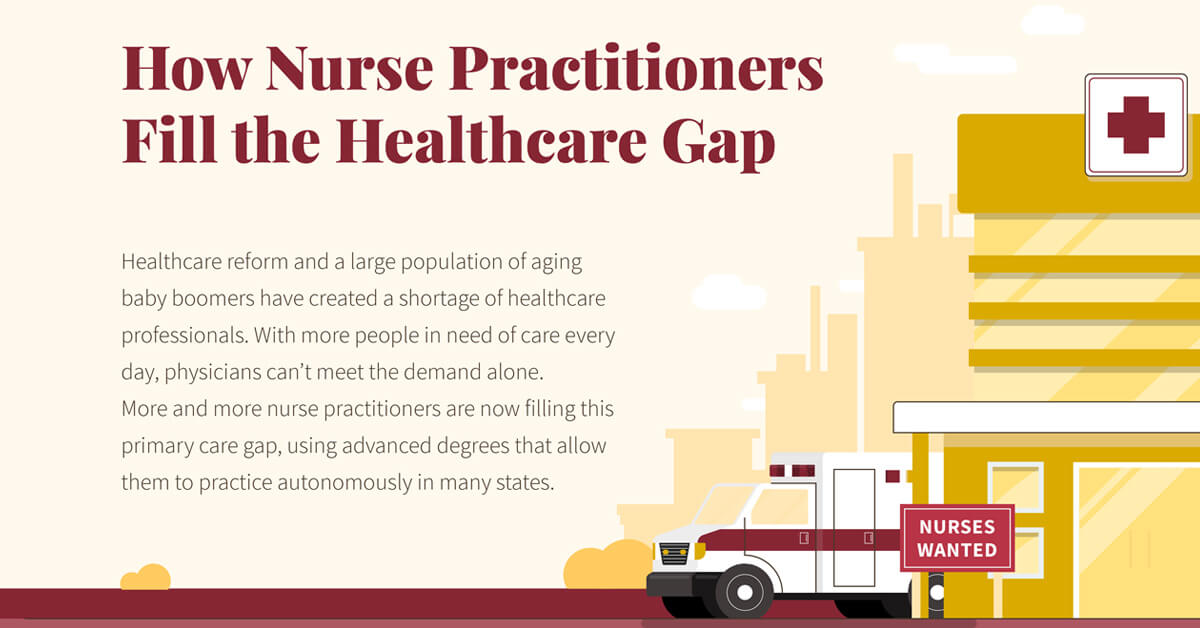How Nurse Practitioners Fill the Healthcare Gap Infographic

October 2, 2019
How Nurse Practitioners Fill the Healthcare Gap
Large scale reform and a large population of aging baby boomers have created a shortage of healthcare professionals. With more and more people in need of care every day, physicians can’t meet the demand alone. The predicted US shortage of primary and specialty care physicians is projected to be between 42,600 and 121,300 by 2030.
Nurse Practitioners Fill the Gap
Nurse practitioners (NPs) are now filling this primary care gap, as evidenced by the projected 31% growth of practitioners by 2026 (as compared to 13% projected employment growth of physicians and surgeons by that year).
NPs are using their advanced education, experience and credentialing to take on a larger role in providing healthcare, particularly to rural or otherwise underserved populations.
More Patients Need Care
The aging baby boomer population will need care as its members reach 65+. Additionally, healthcare reform has helped millions of new patients seek care. With full practice authority, nurse practitioners can fill the resulting care gap.
Across the US, state laws and regulations govern NP authority. Giving nurse practitioners full practice authority opens up healthcare access to more people and helps reduce the impact of the physician shortage.
How Nurse Practitioners Improve Patient Care
Studies consistently show that nurse practitioners provide the same quality of care as physicians do, and in some cases offer better patient experiences. Depending on the state, an NP can provide care with restricted practice, reduced practice, or full practice.
Learn about the various online MSN degree specializations offered by Walsh University, such as Family Nurse Practitioner (MSN-FNP), Nurse Educator (MSN-NE), and Psychiatric Mental Health Nurse Practitioner (MSN-PMHNP). These flexible, online programs can be completed in as little as 2.5 years while continuing to work. For working RNs who already hold a Master's degree, we also offer Post-Graduate FNP Certificate and a Post-Graduate PMHNP Certificate programs.
With one of the most affordable tuition rates and assistance in finding preceptors through Walsh’s many local clinical partnerships, there’s no need to put achieving your dreams on hold.
